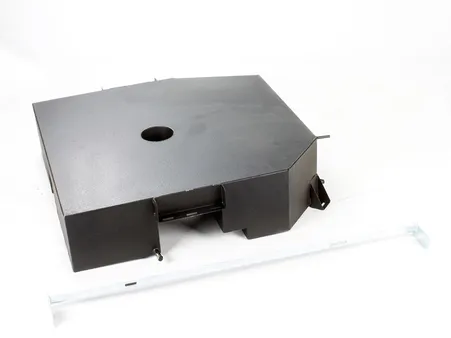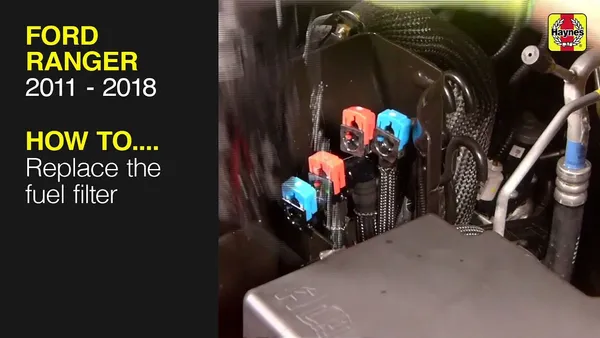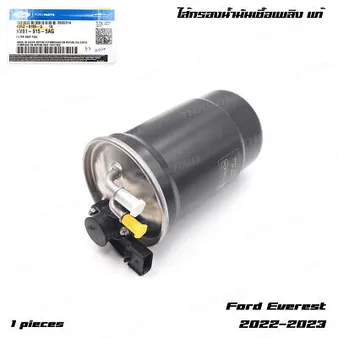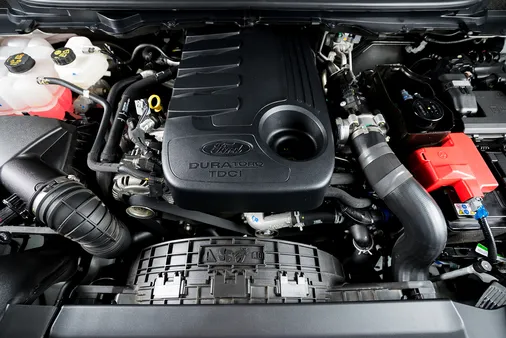Table of Contents
When it comes to choosing the right fuel for your Ford Everest, a critical decision arises: gasoline or diesel? Each fuel type presents distinct characteristics that cater to different driving needs. Whether you prioritize performance, efficiency, or environmental impact, understanding the nuances between gasoline and diesel is essential. At Western Ford HCM, we're committed to providing comprehensive insights to help you make informed choices. In this detailed guide, we'll delve into the key differences between gasoline and diesel for Ford Everest, empowering you to select the fuel that best aligns with your driving style and requirements.

Fueling Up: Gasoline vs. Diesel for Ford Everest: Which One is Right for You?
Feature | Gasoline | Diesel |
|---|---|---|
Fuel Type | Gasoline | Diesel |
Performance | Good acceleration, responsive | Excellent torque, better towing |
Fuel Economy | Lower MPG | Higher MPG |
Towing Capacity | Lower towing capacity | Higher towing capacity |
Maintenance Costs | Generally lower | Generally higher |
Environmental Impact | Higher emissions | Lower emissions |
Availability | Widely available | Less widely available |
I. Gasoline vs. Diesel: Fuel Economy
Gasoline: Lower MPG
Gasoline-powered Ford Everests typically offer lower fuel economy compared to their diesel counterparts. This is because gasoline engines require a higher air-to-fuel ratio to operate, resulting in more fuel consumption.
Diesel: Higher MPG
Diesel engines, on the other hand, are known for their improved fuel efficiency. They have a lower air-to-fuel ratio, which means they burn less fuel to produce the same amount of power. As a result, diesel-powered Ford Everests typically offer higher MPG ratings compared to gasoline models.

Gasoline vs. Diesel: Fuel Economy
II. The Power of Diesel: Torque and Towing
Towing Capacity: Hauling Power
When it comes to towing, diesel engines excel due to their impressive torque. Torque is the twisting force that allows a vehicle to pull heavy loads. Diesel engines produce more torque than gasoline engines, making them ideal for towing boats, trailers, and other heavy equipment. The Ford Everest, equipped with a diesel engine, offers a maximum towing capacity of up to 7,500 pounds, significantly higher than its gasoline counterpart.
In addition to its superior towing capacity, diesel engines also provide better fuel economy when towing. Diesel fuel contains more energy per gallon than gasoline, and diesel engines are more efficient at converting that energy into power. As a result, diesel-powered vehicles can tow heavy loads while consuming less fuel compared to gasoline-powered vehicles.
Maintenance and Repair Costs
Diesel engines generally have higher maintenance and repair costs compared to gasoline engines. This is primarily due to the more complex design and components of diesel engines. Diesel engines require specialized parts and fluids, and their maintenance and repairs often require specialized knowledge and equipment. Additionally, diesel fuel injectors and turbochargers can be expensive to replace if they fail.
However, it's important to note that diesel engines typically have a longer lifespan than gasoline engines. With proper maintenance, diesel engines can last for hundreds of thousands of miles, while gasoline engines typically have a lifespan of around 150,000 to 200,000 miles. This extended lifespan can offset the higher maintenance costs over time.
Feature | Gasoline | Diesel |
|---|---|---|
Towing Capacity | Lower towing capacity | Higher towing capacity |
Fuel Economy (Towing) | Lower fuel economy | Higher fuel economy |
Maintenance Costs | Generally lower | Generally higher |
Lifespan | Shorter lifespan | Longer lifespan |

The Power of Diesel: Torque and Towing
III. Maintenance Costs: Diesel vs. Gasoline
Diesel engines generally have higher maintenance costs than gasoline engines. This is due to the more complex design of diesel engines, which require specialized parts and more frequent servicing. Diesel fuel also tends to be more expensive than gasoline.
Explore our in-depth guide on maintenance costs for Ford Everest, covering both diesel and gasoline options.
Maintenance Item | Gasoline | Diesel |
|---|---|---|
Oil changes | $30-$50 | $40-$60 |
Fuel filter replacement | $50-$70 | $100-$150 |
Air filter replacement | $20-$30 | $30-$40 |
Spark plug replacement | $100-$200 | N/A |
Timing belt replacement | $500-$1000 | $800-$1500 |

Maintenance Costs: Diesel vs. Gasoline
IV. Resale Value: Holding Onto Your Investment
Resale value is an important consideration when choosing a vehicle, and the Ford Everest is no exception. Here are some factors that can affect the resale value of your Everest:
Mileage: Vehicles with lower mileage typically have higher resale values. This is because they are seen as being in better condition and more reliable.
Mileage | Resale Value |
|---|---|
0-30,000 miles | Excellent |
30,000-60,000 miles | Good |
60,000-90,000 miles | Fair |
90,000+ miles | Poor |
Mileage: Vehicles with lower mileage typically have higher resale values. This is because they are seen as being in better condition and more reliable.
### Condition: A well-maintained vehicle will have a higher resale value than one that has been neglected. This includes regular maintenance, such as oil changes and tire rotations, as well as any repairs that may be necessary.
Maintenance:
### Model year: Newer model year vehicles typically have higher resale values than older model year vehicles. This is because they are seen as being more up-to-date and having the latest features.

Resale Value: Holding Onto Your Investment
V. Conclusion
Ultimately, the choice between gasoline and diesel for your Ford Everest depends on your individual driving needs and preferences. If you prioritize performance, towing capacity, and fuel efficiency, diesel may be the better option. However, if you value lower maintenance costs, wider availability, and a smoother driving experience, gasoline might be a more suitable choice. By carefully considering the factors discussed in this guide, you can make an informed decision that aligns with your driving style and requirements, ensuring a satisfying and efficient driving experience with your Ford Everest.